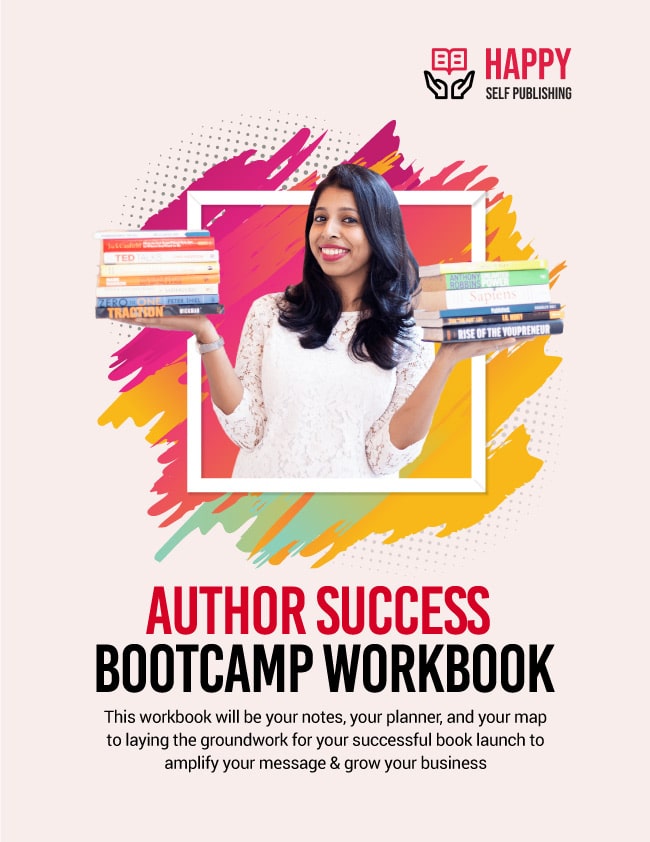If you’ve written a book, or if you’re considering writing a book, then you’re probably well aware of the phrase, the money’s not in the book… And maybe you’re even a little worried about whether it’s financially worth your while to write your book? Well, unless you are already well-known, or you have a big email list, then it’s true that you won’t make a fortune from your book. Or at least from your book directly.
Most authors use their book to bring them other business — and creating corporate workshop is just one way to add an additional source of revenue onto any writing or client income.
Alison Sigmon tells us how. Alison Sigmon is a longtime PMP certified project manager, clinical therapist, and business executive. She has co-founded or worked with several startup companies in the digital space. Companies and organizations around the world have relied on her expertise to train, facilitate, consult with, and coach tens of thousands of people. She has won several awards for her leadership and training efforts. She has led projects for the following: software and user experience design; digital content strategy; brand design and development; marketing, advertising, and communications strategy; business development and fundraising; video design and production; and eCommerce. Her efforts focus on the behavioral side of project management and relationships. Articles, presentations, and training materials can be found at several noted digital and traditional publications and her website at www.alisonsigmon.com.
As a coach, consultant or expert, or as a writer and blogger, you may not realize, but you’re sitting on a mountain of content that you can re-purpose.
And re-purpose for profit, not just for content marketing. That content can be turned into a successful and highly profitable corporate workshop. The corporate workshop market is continuing to go up and up. Every year holds more promise for learners to turn online for their educational and training needs, and for you to get on board with this trend and create online training as an additional revenue stream in your business. But how do you go about making the transition from author and expert, to expert and teacher? And how do you re-purpose everything you have in writing into a structured, online training course that sells?
Reasons to Conduct Workshop
There’s hardly any doubt that you need to be convinced about the benefits of creating corporate workshops, but in case you do, we’ve listed the four main reasons why you should consider doing it now.
1. Supplement your income
Re-purposing your content for online training is a great way to add another revenue stream to your business. And it can be ‘passive’ revenue at that. Just like your book, once created it can be sold many times over, your courses can work in the same way. The growth in affordably-priced, self-paced learning has been nothing short of phenomenal, and you can be part of it.
2. Increase traffic to your blog or business
You’re re-purposing your content which means you have more content and more pages on your website. This is great for your SEO and more traffic means more customers. If you host your training on other sites, then you’re taking advantage of their traffic to bring new customers to you. All of this helps to build your business and your brand.
3. Reach customers through different media
Multi-channel marketing is the second core piece of Content Strategy.
By providing content that your audience is searching for in more places, and through different media, then you’re opening up the potential for more people to find you.
4. A different way to deliver your message
Delivering your message in different ways, over time, not only increases retention and impact, but it gives you the chance to describe what you’re doing from several angles. Saying something two different ways is more than twice as good as saying it once. You might be creating training for any one, or more than one, of these reasons. But do be clear before you start because it will affect the goal of your training — what business outcome you are aiming to achieve; and it will affect how much time, money and resources you invest in it.
But what’s different when you enter the online training market, is that you need to know, not only your topic, but which parts of what you know are the parts that people want to learn more about — and are prepared to pay for.
It’s all very well having something to sell; the more important question is
Will they buy?
If you’ve been running live training, or selling books, then you’ve probably been through this learning curve and you know what drives readers to pick up your book and keep on reading. If this is your first foray into selling your expertise, then make sure you take the time to research what is selling.
1. LOOK AT WHAT YOU HAVE : Whether it’s from your paid content, like your book, or live workshops, or work with clients, or your free content like blog posts, then research what it is that readers are asking. Go through the comments on your blog, likes and shares on your Facebook page, feedback and reviews of your book and look for trends in the questions that people ask, and the feedback they give you.
2. ASK : Put a shout-out on your blog, ask your email subscribers, or post a question or a survey on Facebook or twitter to ask your audience what they are struggling with, or what questions they have about what you teach. It’s better to listen to questions, or ask for frustrations because hypothetical predictions of what people say they want are not always an accurate reflection of what they really do want.
3. TEST : Testing is so easy when you run part, or all, of your business online. Test different topics by creating landing pages to advertise different online courses that are ‘coming soon’. Ask people to sign up for a waiting list and track how many people visit the page and how many convert to that waiting list. That conversion from casual visitor to subscriber is a good test of which topic is most in-demand. Keep the pages as similar as possible, with only the topic varying, so that you reduce the factors that could be affecting sign-ups.
4. PICK YOUR TOPIC : And, whatever topic you choose to go ahead and make that course about, make sure it is in the zone of ‘hot’ skills, practical information that people actually need, and something you are passionate about and a topic in which you have experience and expertise.
5. LEARNING OUTCOMES AND STRUCTURE :When you’re making the switch from book to course, or from blog to course, treat it like every other project you’ve ever completed successfully: set clear goals. Goals for you, and goals for your learners.
6. OUTCOMES = MARKETING : When you’re thinking about your learning outcomes, it’s important to remember that your outcomes also act as marketing hooks.
These learning outcomes need to include action words that catch potential customers attention, and encourage them to engage with your product.
As an author, you probably already have these learning outcomes — you just don’t call them that. You call them sections, chapters, headings and subtitles. You’ve already spent hours agonizing over the structure, which means your job now is so much easier.







